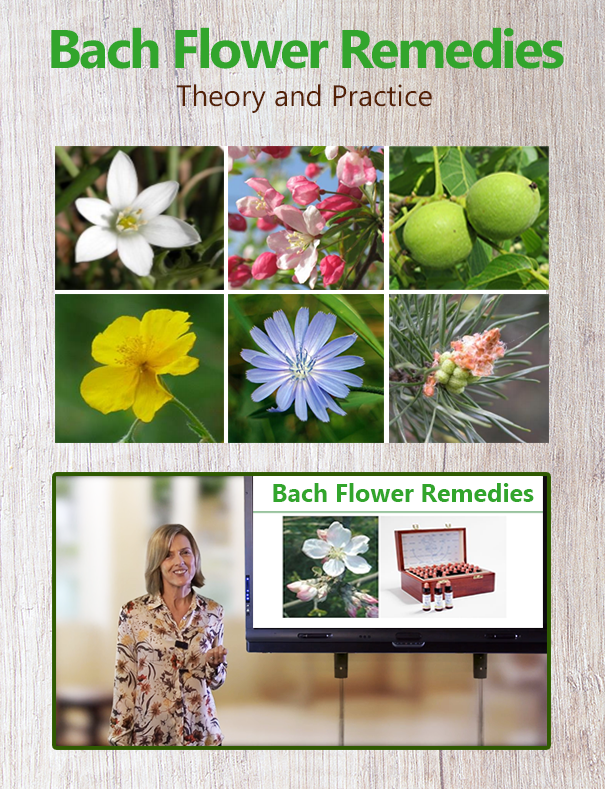
Bach Flower Remedies
Theory and Practice
Dr. Edward Bach was a medical doctor working at a London hospital specializing in colon health. He developed the Bach Flower Remedies in 1915. Bach was disillusioned with the emphasis medicine placed on diseases (symptoms) rather than the individual and wanted to find a gentle, effective and non-invasive approach to help his patients. He saw illness as the body’s way of expressing mental disharmony.
Dr. Bach was able to perceive the energy of plants (flowers) and the energy of his patients. He then developed a way on how to pass on these specific plant energies. Individual Bach Flower Remedies were given to match the energy of patients. As a result, patients recovered emotionally and physically.
Dr. Bach developed 38 remedies and their applications over the years.
Don’t forget: Buy 1 short course, get 2nd one 50% OFF!
Tuition: $695
Length: 2-6 month
150 pages of handouts
5+ hours of filmed lectures
Practice exams and exercises
Bach Flower Course
- History of Bach Flower Remedies (BFR)
- Principles of working with BFR
- The 38 remedies and their applications
- 12 Healers – constitutional types
- 7 Helpers – for chronic states of mind
- Second 19 – for acute states of mind
- Selecting remedies, dosage, potency
- Case taking and case analysis
- Bach Flowers for daily life applications
- Bach Flowers for children, adults, plants, pets and animals
Aligned with Dr. Edward Bach’s view – people are comprised of a physical body and a soul. The soul is linked to the physical body. Life situations may manifest as physical illness (e.g. cold after a stressful event, ulcer after chronic anger). Flower essences resonate at the soul level filtering to the physical body.
Bach Flower Remedies Course Syllabus
Learn on this course to address the following emotions:

Heather
Self-absorbed / Lonely / Needy

Hornbeam
Mental fatigue / Apathy / Over burdened
- Impatient, irritable
- Fear, nervous, worry
- Doubtful, uncertainty
- Hopelessness, despair, pessimistic
- Dominating, bullying
- Self-pity, resentment, bitterness
- Feeling unclean, impure
- Trauma, shock, distress
- Overconcerned for others
- Homesick, living in the past
- Depression, melancholy
- Intense sorrow, despair
- Day dreaming, inattentive
- Possessive, demanding, over-protective
- Easily discouraged, overwhelmed
- Exhausted, fatigue
- Purposeless, lack of confidence
- Critical, intolerant
- Envy, jealous, hatred
- Repetition of unwanted thoughts
- Guilt, self-reproach
- Apathy, resignation
Certificate of Completion
After you have completed this course, you will receive a Certificate of Completion.
Short online courses are not designed or intended to qualify its participants and graduates for employment.
It is intended solely for the avocation, personal enrichment, and enjoyment of its participants.
